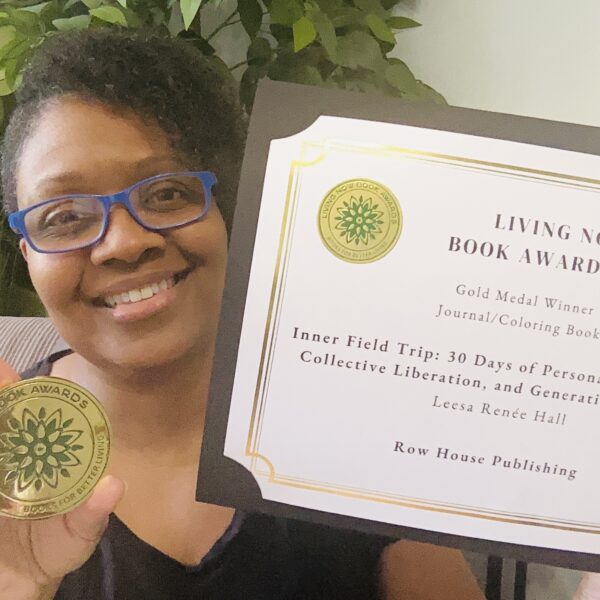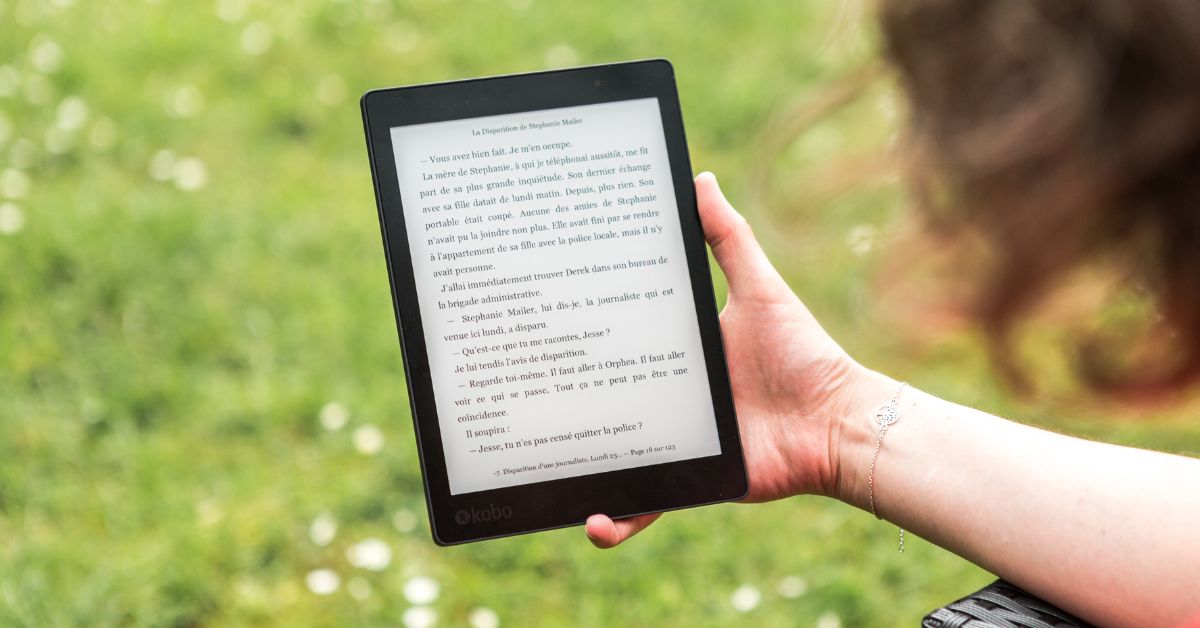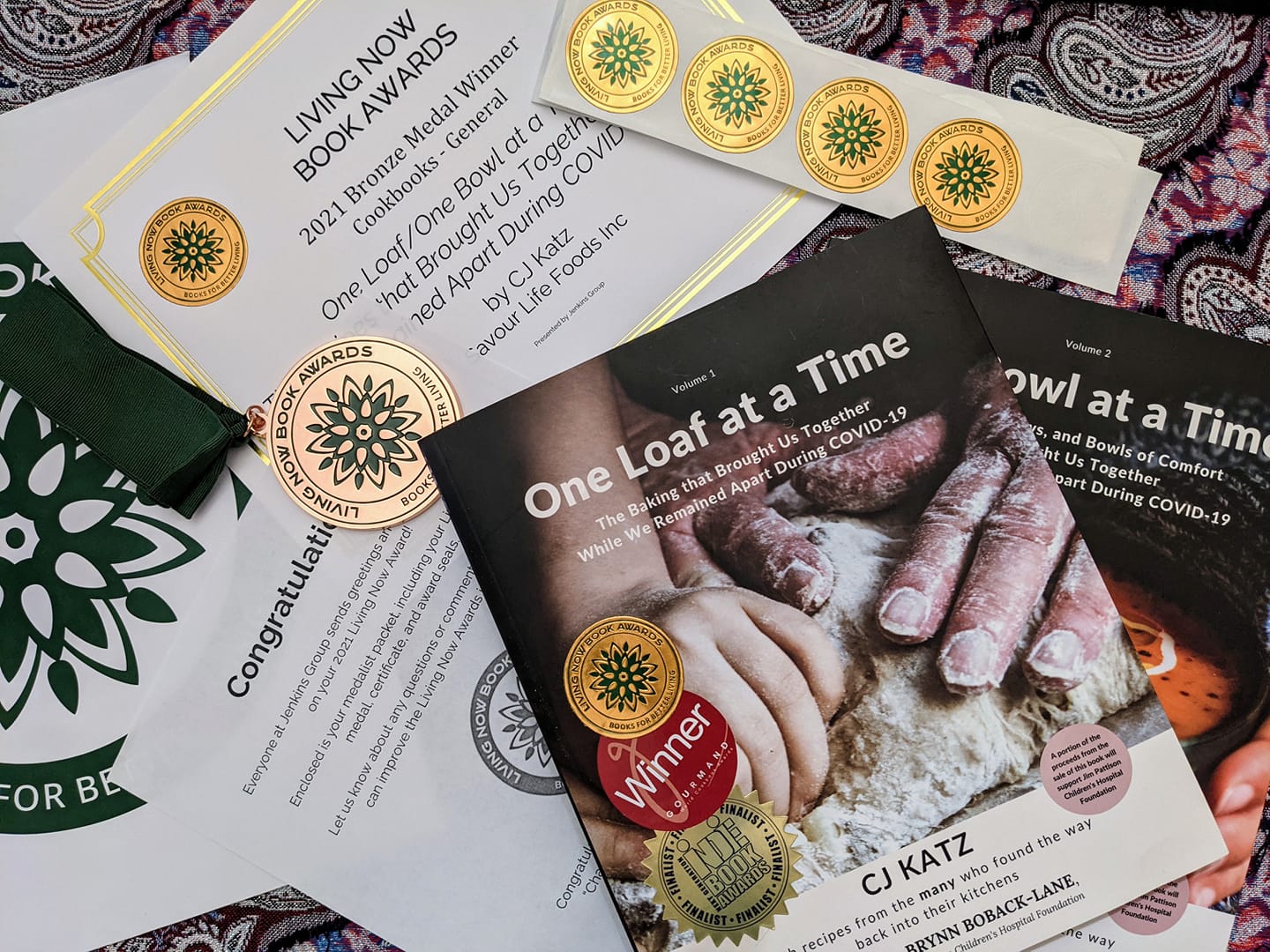
Leesa Renée Hall follows a rigorous writing routine, but her subject matter has a softer approach. Her latest work, Inner Field Trip: 30 Days of Personal Exploration, Collective Liberation, and Generational Healing centers on exploring our own humanity, but with a compassionate viewpoint.
A licensed therapist, her dedication to qualitative research and commitment to writing has resulted in significant recognition for her book, including a Living Now Gold Medal award in the Journal/Coloring Book category.
We had an opportunity to connect with Hall and discuss her reaction to winning a Living Now Award, her steadfast approach to writing, and her mindset on compassion toward human complexity.
What Winning a Living Now Award Means
Inner Field Trip was already an award-winning title, but the Living Now award was the first time it secured first place within its category. For Hall, the top place award has been very gratifying. “I was so happy,” says Hall. “The Summer Olympics were happening at the time, and I remember joking on Instagram, ‘Simone Biles isn’t the only one winning gold haha!’”
Hall was pleasantly surprised to not only see that Inner Field Trip had won, but that it had been moved to a different category from which she originally submitted. Eventually winning in the Journal/Coloring Book category, Hall was pleased to see that it was recognized for its unique nature and format. “It was incredibly affirming to see the book recognized in a category that highlights its unique and innovative approach,” she says.
The Writing Process
For Hall, committing to a consistent and dedicated writing routine has had positive results. Following the guidelines set out by Julia Cameron in The Artist’s Way, Hall wakes up at around 5:30 AM every morning and proceeds to journal a minimum of 750 words. “I journal in an unfiltered, uncensored way–a sort of writing slop of emotions and thoughts swirling in my head,” she says.
Hall has been writing this way since 2017 with impactful outcomes. “Research shows that expressive writing, another phrase used for journaling, can be as impactful as talk therapy in changing human behavior,” says Hall. “My writing process is fundamentally about creating space for authentic, unfiltered self-exploration, grounded in compassion and therapeutic insight.”
This intentional way of writing has benefited Hall greatly in her work and has solved for her one of the main afflictions of authors; “By journaling without a specific aim, I also free myself to think more clearly and rediscover my creativity. As a result, I never experience writer’s block.”
Inspiration for Inner Field Trip
Hall is not unlike many authors in that she sought out to write a book that she wished to read, but could not find. She is also quick to add that she did her best to avoid a common pitfall of writing a book nobody asked for! “I should know; I’ve done this with a few self-published titles in the past!” she jokes.
Besides self-motivation, Hall was also driven by the community that formed around posting her own journaling experiences. “The journey to my book, Inner Field Trip, began in 2015 when I shared the results of my own journaling practice on socials.” Encouraged by the response and willingness of readers to also share their inner thoughts, Hall started forming her book. “No matter which platform I used to build a community around my work, people kept showing up with incredible courage,” she says.
Themes of Empathetic Self-Exploration
Inspired by an engaged community and her own thought exploration, Hall began creating a journal experience focused on uncovering all parts of ourselves and healing without pain. “The primary theme I hope readers take away is that healing doesn’t need to be rooted in suffering,” she says.
Hall emphasizes that healing and self-discovery should consider humanity and that we are all fallible. “Healing isn’t about shame, guilt, or feeling emotionally torn apart,” she says. “Instead, it’s about approaching self-discovery with compassion and understanding. I want readers to understand that they’re neither villains nor heroes, but complex human beings.”
Perhaps above all, Hall iterates that people should embrace their imperfections and “shadow parts.” Through this self acceptance, Hall hopes that readers will find empathy for others as well. “As I often say, ‘Embrace your humanity to embrace the humanity in others,” she says.
What’s Next for Hall
Building off of these steps of self understanding and empathy, Hall is working on a book that promotes putting this knowledge into motion. Part of that exploration is how empathy is not always expressed the same, and primarily that empathy is a strength and not a weakness. “Empathy is about seeing the humanity in others, and it can never be wrong to express it,” she says.
And while she hints that the work may take some time, it’s an investment she’s willing to make for her readership! “It may take me another 7 years to have enough qualitative data to write this book, but I’d prefer to wait so I can offer a well-researched book to readers.”
Submit for a Living Now Award
Hall’s writing journey is evidence that commitment to hard work, building community, and exploring empathy can have a ripple effect of inspiring connection. By exploring self-discovery through the lens of compassion, Hall crafted a unique publication that has resonated with readers and beyond!
Along with forgiving oneself, Hall also advocates in believing in yourself as well! “I would say—absolutely do it,” she says, “I let doubt creep in and almost convince me
there wasn’t more recognition needed.” But she is glad she did, “The Living Now Awards don’t just celebrate polished presentation—they recognize heart, innovation, and purpose.”
Think you have a book that would also connect with others? Consider submitting to the Living Now Awards today.




